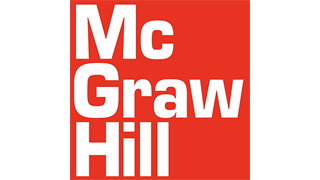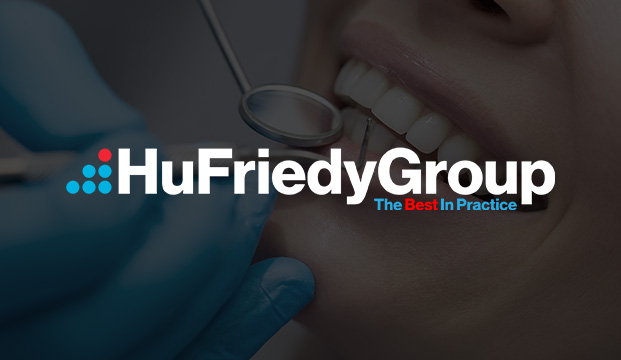Reduced
TCO
10
REPOSITORIES TO MODERNIZE
1
DAY TO BUILD AND DEPLOY APP INTEGRATIONS
McGraw Hill is an American educational publishing company and one of the "big three" educational publishers that publishes educational content, software, and services for pre-K through postgraduate education.

“Our investment in Informatica Data Management Cloud has proven its value in so many ways, and we are only a quarter of the way through our cloud migration.”

Building a Digital Business on Trusted Data
McGraw-Hill Education (MHE) is no stranger to innovation. Over the past 130 years, the company has evolved from an editorial house to a textbook publisher, and their mission is to manage and deliver information digitally to enable all types of learning. In addition to developing trusted, high-quality content with millions of global educators, learners, and professionals—including more than 14,000 authors and 50 Nobel laureates—MHE also delivers educational technology that carves new paths to success.
By leveraging the rich data that comes with these digital offerings, MHE can learn more about its customers than ever before and can monetize that data to offer more personalized learning experiences. For example, with access to real-time data, they can quickly determine whether a customer merely activated a subscription, or if they are using the product daily or weekly. To achieve this, MHE embarked on a cloud modernization journey, moving their on-premise workloads and business-critical systems to the cloud.
Data modernization is a critical piece in any cloud modernization journey. But to make data useful and actionable, this data must be integrated, transformed, cleansed, governed, and trusted. With access to real-time and trusted data MHE is able to reduce time to insights that are critical to compete, and to grow its digital market share and profitability in a constantly changing education market.
MHE chose Informatica’s Cloud Modernization program to accelerate their cloud modernization journey, which will enhance customer engagement and accelerate time to market so that MHE can capitalize on the opportunities ahead.
“Informatica Axon Data Governance was a strong contender right from the beginning because we were already using PowerCenter and we had a great relationship with Informatica.”
Enterprise Data Governance: A Springboard
The first step was to implement a company-wide data governance strategy to improve collaboration and efficiency and reduce avoidable risks across business units. The company wanted to take a holistic, enterprise-level approach to managing both the business and technical aspects of data governance, bringing in data from on-premises mainframes and Oracle-based systems, as well as cloud applications such as Salesforce.

After investigating several options, MHE deployed Informatica Axon Data Governance, complementing its existing Informatica PowerCenter data integration solution with a cloud-native data governance tool. To make sure it could implement data governance successfully, MHE also deployed Informatica Data Quality.
“Informatica Axon Data Governance was a strong contender right from the beginning because we were already using PowerCenter and we had a great relationship with Informatica,” says Roberta Pape, Director, Data Governance at MHE. “We also liked the fact that Axon Data Governance integrates with Informatica Data Quality and PowerCenter, giving us the ability to provide our team with high-quality product usage data and processes.”

Modernize workloads to the Cloud
MHE then decided to accelerate its cloud journey by modernizing from PowerCenter to Informatica Intelligent Data Management Cloud (IDMC). IDMC provides a single, comprehensive platform for all MHE’s data and application integration needs. With an eye toward lowering TCO and time to market, MHE sought to consolidate integration solutions, one platform to support all integration patterns, and realize cost savings by moving to a cloud-first, cloud-native solution.
A simple Informatica Processing Unit (IPU) pricing model gives MHE the flexibility to onboard current and future data integration use cases. Using IPU pricing, MHE can acquire capacity across a range of cloud services to quickly onboard new capabilities without worrying about connectivity—making Informatica one of the fundamental building blocks for MHE’s IT systems modernization program.
MHE used Informatica’s Intelligent Migration Factory on some PowerCenter mappings from another project that hadn’t begun yet. When the application is ready for migration, MHE will rebuild these mappings in IDMC according to its new standards. MHE adopted a phased migration approach to reduce risk. In the first phase they migrated a number of mappings and are planning to migrate the rest in the second phase. The company will also use Migration Factory for its remaining data warehouse mappings in the next stage of its modernization initiative.
“Our investment in Informatica Data Management Cloud has proven its value in so many ways, and we are only a quarter of the way through our cloud migration,” says Lee Rosenfeld, ETL Integration Architect in MHE’s Global Technology Solutions department. “We’ve already reduced costs, virtually eliminated admin overhead, and accelerated time to deployment, while conforming to our process and audit standards. In fact, we've built and deployed integrations the same day—something that would have been unthinkable before.”
In addition, connectors to access data in the cloud are automatically included with IDMC. This eliminates support requests, resulting in near-zero administration. As a result, admins can focus on more strategic projects such as assisting stakeholders with other activities like setting up new firewall rules, and new projects. And Rosenfeld and his team will no longer have to worry about upgrading applications that are highly customized at the data tier, such as their financial tool or the product data hub, driving further efficiencies and reducing risks.
“The market is constantly evolving so we are always enhancing applications to meet new business needs,” he says. “Automated upgrades will help ensure that we’re presenting the right information to our customers at all times.”
A Common Data Framework Drives Decision-Making and Efficiency
With trusted, governed, high-quality data, MHE is successfully merging people, processes, and technology to achieve its business goals. Both MHE’s IT function and lines of business can collaborate successfully on data governance, which is resulting in smoother operations across the board.

“With Informatica Axon Data Governance and Data Quality, the use of our data for BI reporting is much stronger than it was even a year ago,” says Pape. “We’re tracking data quality week by week. With better data and better BI, we can run the business better, be more efficient, and increase profitability.”
One example of better-quality data and smoother collaboration between IT and lines of business is the ability for business divisions to easily tag educational products and identify them as core, ancillary, or supplemental. Previously, there was little or no visibility into those distinctions at the corporate level. As a result, distinguishing core products was difficult for the business. The terms “ancillary” and “supplemental” were often used interchangeably, even though ancillary products are designed to work with, or support, specific core content and supplemental products can be used with any core content within the same subject discipline.
“Having a corporate view of what is considered a core product versus ancillary or supplemental really helps with understanding sales trends and customers’ usage of our products,” says Pape. “Axon Data Governance gives us that visibility.”
With the ability to capture data definitions in business terms within the business glossary and sync with technical metadata to gain an understanding of critical data elements, MHE developed a common subject taxonomy across the business, consistently tagging products with their discipline and subject.

A Cloud-Enabled Pathway to Digital Growth
Gaining a holistic understanding of its business and how customers use its educational products, coupled with the agility of the cloud, is enabling MHE to improve decision-making and customer engagement. Today, digital products drive nearly three quarters of MHE’s current billings, accounting for $1 billion in revenue.
“By enhancing business value, we can improve the value we deliver to our customers,” says Rosenfeld. “The cloud is a gateway to both and is at the core of modernization journey. Informatica knows what it takes to get us there.”
Inside the solution
Intelligent Data Management Cloud
Cloud Data Integration
Cloud Application Integration
Application Modernization
Axon Data Governance
Data Quality & Observability
More Success Stories
Deliver Faster, Simpler, and More Cost-Effective Cloud Data Integration for Analytics









